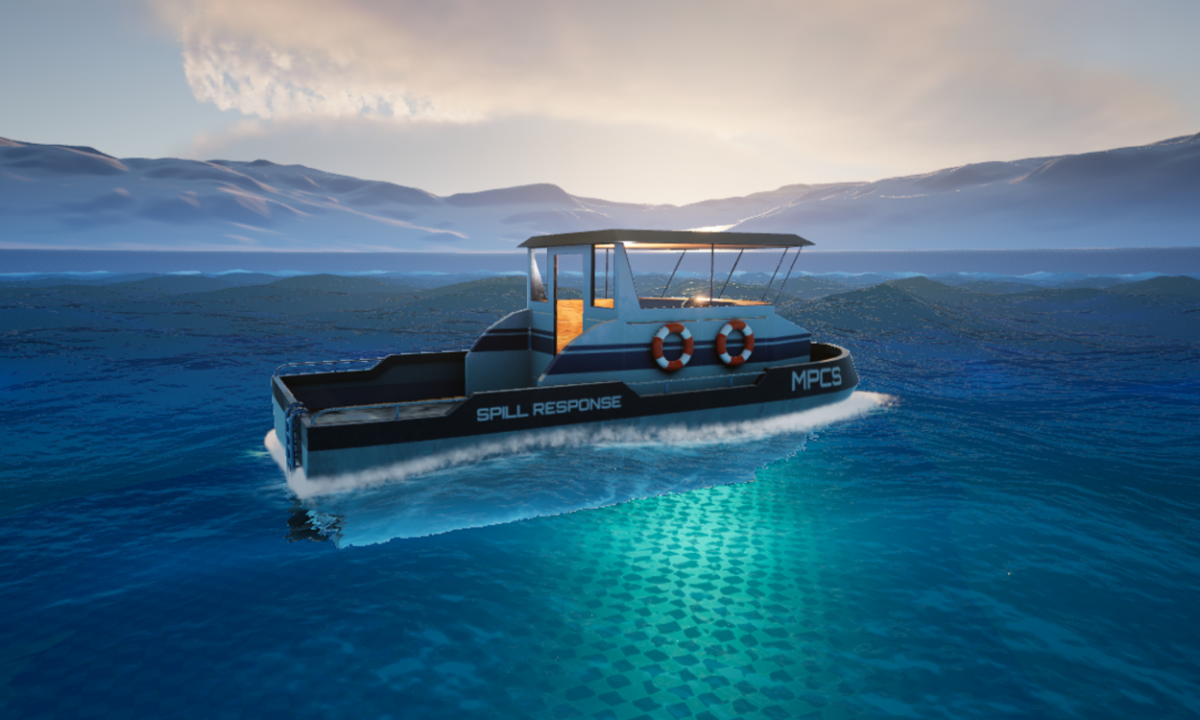Simulators have proven to be a very useful tool for training in high-risk professions, such as navigation, aviation, or medical care [1]. They enable students and profession-als to train in a safe environment where expensive hardware, software systems or even lives will not be at risk. The use of simulators gives practitioners the freedom to fail and observe the direct consequences of inappropriate actions, an aspect that has a huge impact on education, since many of the most memorable lessons are the ones where we learn from our own mistakes. Simulation-based training also allows practitioners to prepare for very rare situations that would be impossible to train in real life, such as evacuating a sinking ship.
With the goal of bringing the benefits of simulation-based training to the area of marine pollution control, the MPCS project is focusing on the development of a cloud-based platform that can serve as an environment for teaching, training, and evaluation of MPC (Marine Pollution control) operations. Through this simulator, we aim to create virtual scenarios that can be used to develop/refine individual and collective skills geared towards the spill containment process. To enable the coordinated readiness, the simulations must take place in multi-user environments, where each participant will assume one of a set of possible roles of professionals involved in marine pollution control (command and control, communications, navigation, operation of specialized equipment such as barriers, skimmers, pumps, and containers). Inside those environ-ments, users should be able to interact with the equipment around them, the spill, and with each other, to meet the desired training exercise goals.
The MPCS VR Simulator was developed by João Silva, Jorge C. S. Cardoso, and Luís Pereira.

